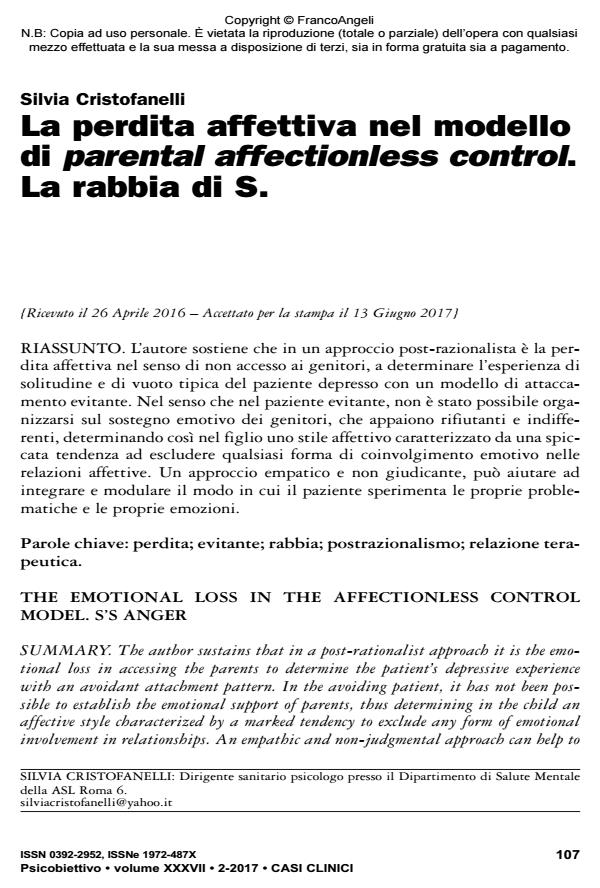The emotional loss in the affectionless control model. S’s anger
Journal title PSICOBIETTIVO
Author/s Silvia Cristofanelli
Publishing Year 2017 Issue 2017/2
Language Italian Pages 7 P. 107-113 File size 94 KB
DOI 10.3280/PSOB2017-002007
DOI is like a bar code for intellectual property: to have more infomation
click here
Below, you can see the article first page
If you want to buy this article in PDF format, you can do it, following the instructions to buy download credits

FrancoAngeli is member of Publishers International Linking Association, Inc (PILA), a not-for-profit association which run the CrossRef service enabling links to and from online scholarly content.
The author sustains that in a post-rationalist approach it is the emotional loss in accessing the parents to determine the patient’s depressive experience with an avoidant attachment pattern. In the avoiding patient, it has not been possible to establish the emotional support of parents, thus determining in the child an affective style characterized by a marked tendency to exclude any form of emotional involvement in relationships. An empathic and non-judgmental approach can help to integrate and modulate the way in which the patient experiences their problems and their emotions.
Keywords: Loss; Avoidant; Anger; Postrationalism; Therapeutic Relationship.
Silvia Cristofanelli, La perdita affettiva nel modello di parental affectionless control. La rabbia di S. in "PSICOBIETTIVO" 2/2017, pp 107-113, DOI: 10.3280/PSOB2017-002007